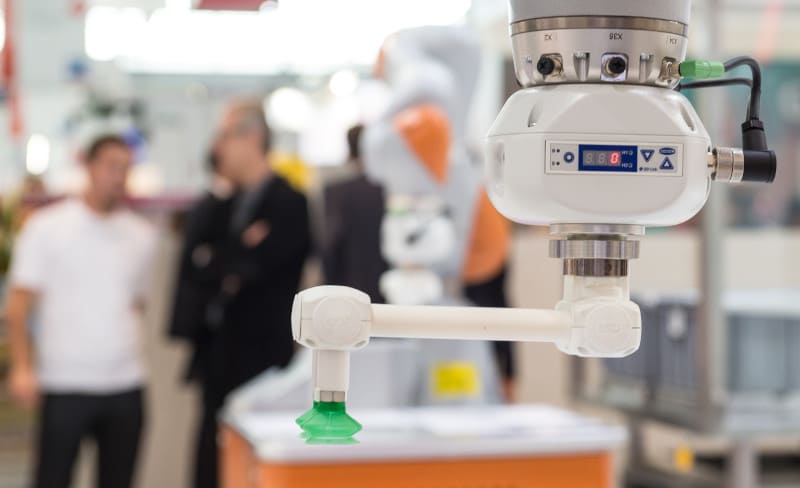Most workers in Germany think that the use of robots in manufacturing will maintain the nation’s competitiveness. Three out of four believe that robotics can aid in mitigating the impacts of skills shortages. Approximately 80 percent prefer robots to handle risky, unhealthy, or monotonous jobs. These are the results of the 2025 automatica Trend Index. It relies on interviews conducted with 5,000 employees across five nations.
Enhancing the competitive stance is one of the most urgent challenges facing the new federal administration. The industry plays a crucial role in this initiative. It is concerning that the number of robots in Chinese manufacturing settings has surpassed that in Germany. The nation has increased its robot-to-factory-worker ratio twofold in four years (2019-2023). The International Federation of Robotics (IFR) reports that in 2023, China moved to second place globally with 470 units per 10,000 employees. Germany has fallen to fourth position with 429 units, while Japan is fifth with 419 units.
Dirty, monotonous, dangerous: robots take on unpopular jobs
The automatica Trend Index is based on interviews with more than 1,000 employees each in Germany, Japan, China, USA, and the United Kingdom. According to the survey, around three out of four respondents in Germany feel that robots can help improve competitive positioning and keep industrial production in their own country. The Trend Index found that respondent approval is even stronger in China: Around 80 percent of them see the positive effects for domestic industries. In contrast to that, it is only two out of three in the US.
Robots help tackle lack of specialists
The lack of specialists is a key driver of automation adoption. 75 percent of respondents feel that robotics can provide solutions in this context. The automatica Trend Index produced particularly high approval figures when respondents were asked whether robotics and automation would improve the future of work: A vast majority wants to hand over dirty, monotonous, and dangerous tasks in factories to robots. 85 percent are convinced that robots lower the risk of sustaining injuries when performing dangerous work. And 84 percent consider robots a key solution for handling hazardous materials. Finally, 70 percent of respondents expect that robots will enable elderly professionals to postpone their retirement.
automatica 2025: solutions for SMEs
“Robotics and automation have great potential in tackling the lack of specialists and improving work environments as they take on unpopular tasks”, says Dr. Dietmar Ley, Head of the VDMA Robotics + Automation Association. “And it has never been easier for companies to benefit from industrial robotics. Robot development is experiencing rapid technological progress in terms of usability. Setting them up and operating them will soon be as easy as using smartphones and similar devices.”
Dr. Reinhard Pfeiffer, Managing Director of Messe München, emphasizes that robotics and automation are not job killers but secure jobs and strengthen the industry’s competitive positioning. Dr. Pfeiffer comments: “The German industry is facing a multitude of challenges. At automatica, around 750 exhibitors from about 40 countries present workable solutions across six exhibition halls. Being a leading international marketplace for automated and smart production, automatica is the perfect platform to engage in knowledge transfer and get inspired.”

